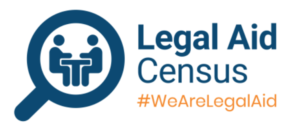The resumption of criminal trials after the Covid-19 crisis could be in jeopardy, according to new research from the Bar Council.
The research, carried out for the Bar Council by economist Professor Martin Chalkley, states that up to 50% of legal aid criminal defence work is carried out by those barristers who face a greater financial risk as a result of the coronavirus. Added to the concern is that most of those barristers are from diverse backgrounds, meaning efforts to make the profession more diverse could be undone by the financial impact of Covid-19.
Amanda Pinto QC, Chair of the Bar Council, said:
“This research shows that the impact of Covid-19 puts criminal justice in jeopardy on two fronts. Criminal trials now and after the crisis abates could be in peril because 50% of legal aid criminal defence work is carried out by barristers who are in the most financial danger as a result of the pandemic.
“Equally worrying, the research also shows that most of the barristers carrying out this work are from diverse backgrounds, meaning the enormous efforts we’ve made, in the public interest, to make the profession more representative of the society it serves, are likely not just to unravel quickly but even to go into reverse.”
In all cases, the vulnerable are more predominantly female, BAME, young or with newer practices. The Bar Council is concerned that their loss from the profession would impact substantially on the diversity of those supplying legal services.
Pinto added:
“Unless the Government steps in urgently to rescue these key workers, they will be forced to abandon our profession and the criminal justice system, which was already struggling due to years of underinvestment before the lockdown, will be in an even worse state when the nation emerges from this crisis.”
The supplier base of barristers for criminal legal aid
A total of 5,228 barristers (approx. 33% of the Bar) supplied legally aided defence services. Of these:
- 34% were women
- 13% were Black, Asian and Minority Ethnic (BAME)
- 15% were 25-34 years old2
- 12% had been practicing for 0-5 years, 16% for 6-10 years3
- In 2017-18, these barristers supplied services worth £140m (exc. VAT) in AGFS cases4
Risk of sustainability
Several issues may result in a barrister not being able to survive in practice if the lockdown is protracted or precludes fee generation longer-term. Three vulnerable groups were identified and explained in the research summary.
Key facts & figures for the vulnerable groups
Group V1: This group supplies about 25% of legal aid services and is disproportionately female, BAME, young and relatively inexperienced.
- 26% of legally aided defence barristers fall into this category, supplying £36m (out of £140m) of legal aid work in 2017-18.
- 42% were women (women are over-represented compared to all criminal legal aid supplying barristers).
- 15% were BAME (BAME barristers are over-represented relative to all criminal legal aid supplying barristers).
- 32% were in the 25-34 age group (over-represented relative to all criminal legal aid supplying barristers).
- 47% have been in practice less than 11 years (compared to this group being 28% of total suppliers).
Group V2: This group of vulnerable practitioners constitutes about 50% of work (by value) and is broadly representative of all suppliers, except that they are more experienced.
- 2188 barristers fall into this group and supplied nearly ½ (£67m out of £140m) legal aid services.
- 33% are women (approximately the same as for all suppliers)
- 13% are BAME (approximately the same as for all suppliers)
- 12% are 25-34 years old (approximately the same as for all suppliers)
- 25% have been in practice less than 11 years (less than the 28% for all suppliers)
Group V3: This is potentially the most vulnerable group on account of a combination of a lack of experience (and therefore access to a more limited range of work) and a history of fluctuating fee income.
- 4% (213 barristers) are in this group and they supply £3m of AGFS work
- More than 51% are women
- 12% are BAME
- 59% are in the 25-34 age group.









